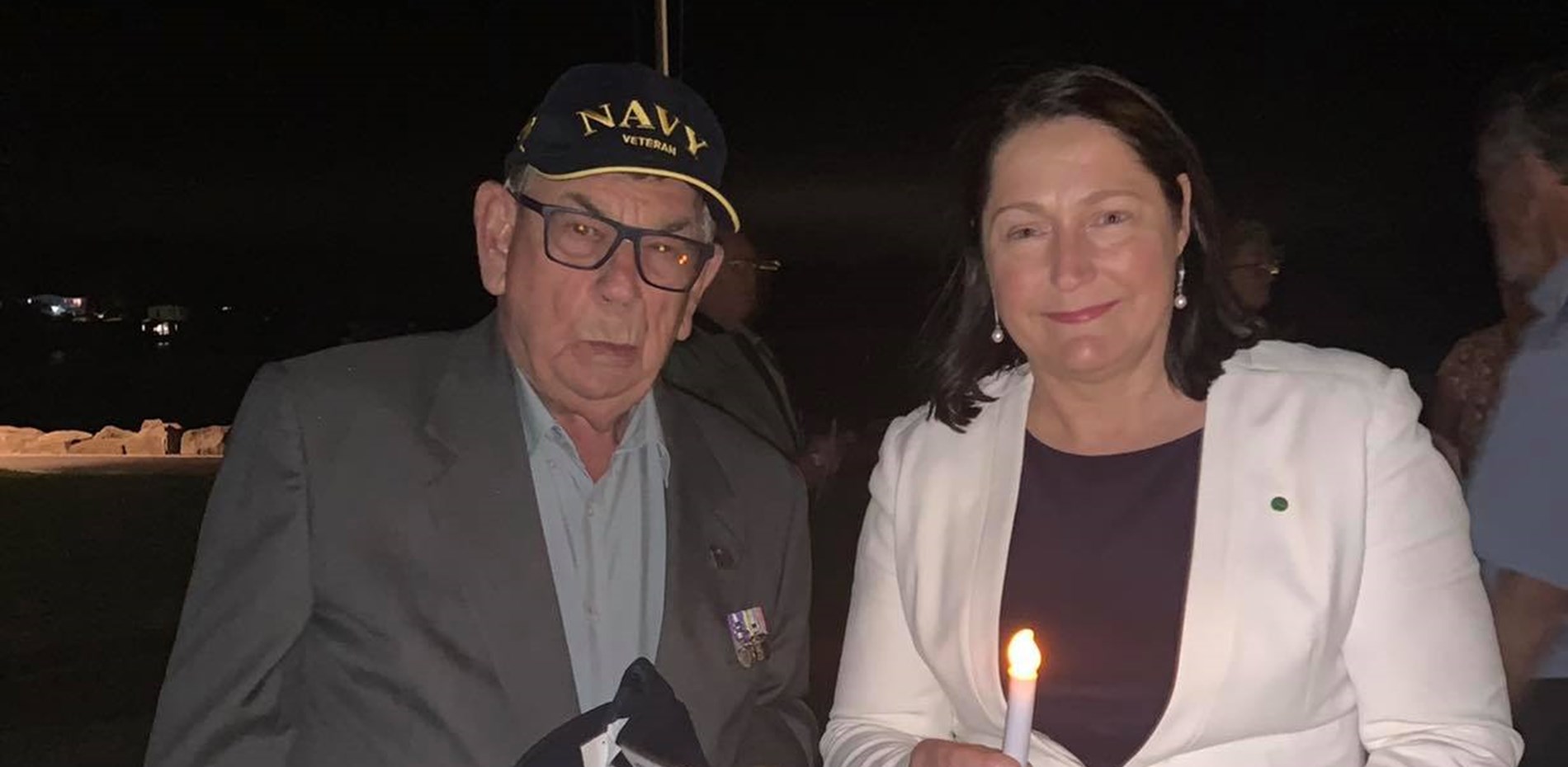Mrs PHILLIPS (Gilmore) (19:08): 'I was only 19,' was the response, with tears in his eyes, when I asked a survivor of the HMAS Voyager disaster how old he was at the time of the tragedy. He was one of the last off the ship. 'I was 20,' said another. Yet another survivor was only 17 years old.
It was the evening of 10 February 2021, 57 years since the HMAS Voyager collided with the HMAS Melbourne off the coast of Huskisson on the New South Wales South Coast. The worst peacetime disaster in Australian maritime history. Organised by the HMAS Voyager Survivors Association, survivors and their families joined together at Voyager Park, Huskisson, for a commemoration service at 8.45 pm.
The survivors lost 82 of their shipmates that night. They come together each year to remember their mates. The bow section of the ship sank in only 10 minutes that night. It all happened so quickly. But for these men and for the families of everyone on board, its impact has lasted a lifetime.
I would like to pay tribute to the families who lost loved ones and to the survivors and their families. Thank you also to the HMAS Voyager Survivors Association that works hard to help survivors. At the survivors get-together lunch the next day, I asked, 'What happened after the disaster?' I was told that survivors were dispersed to work on different ships, separated from those who understood what they had been through. Beyond a week's leave, there was no counselling or support for the emotional damage the tragedy inflicted. The emotional scars are still evident, because something like that doesn't leave you. That's the key message.
I have been contacted by many veterans and their family members who are calling for a royal commission into defence and veteran suicide. John, a survivor from that HMAS Voyager disaster, has also called for a royal commission into veteran suicide. John says, 'As a returned veteran who has had many dealings with the Department of Veterans' Affairs, I can understand the frustrations and disappointments suffered by veterans.' John also says, 'Despite all the wonderful speeches made by politicians when deploying us, it is an entirely different scene when we return from active service with difficulties, either physical or mental.' That is why it is so critical we get this issue right. These servicemen and women sacrifice so much for us, for our freedoms. They deserve for us to have their back when they have finished.
Yesterday I attended a Quilts of Valour award ceremony at Greenwell Point. Quilts of Valour Australia is a not-for-profit organisation providing quilts of valour to our veterans. The quilt is a powerful gift of love. The top of the quilt, with its many colours, shapes and fabrics, represents the communities the many individual veterans are in. The wadding, or the filler, is the centre of the quilt, providing warmth. The quilt represents hope that it will bring warmth, comfort, peace and healing to the recipient. The backing is the strength that supports the communities and our nation. Each stitch that holds the layers together represents love, gratitude and sometimes the tears of the maker.
Yesterday at the Greenwell Point Bowling and Sports Club, two much-loved local veterans were surprised with receiving their quilts of valour. 102-year-old Joyce Ferguson, Q142408, entered the Australian Army on 5 July 1942. Joyce, a corporal, worked in signals, before discharging on 6 July 1945. Gary Hastings, 2149002, a private in the Australian Army, was also surprised with a quilt of valour. Gary is a Vietnam veteran from the Royal Australian Infantry Corps 1st Battalion, Royal Australian Regiment. Both Joyce and Gary were surrounded by family and friends, including children and grandchildren, which was lovely to see in a very special ceremony. It was incredibly humbling to witness and shows the value we as a community can show to our veterans.
I would like to thank Quilts of Valour, in particular Stan, the New South Wales coordinator, and his wife, Sue, who volunteer and take the time in New South Wales to coordinate and present these beautiful quilts of healing to our veterans. Thank you to all the quilters and supporters. Thank you to Douglas Clarke, the wonderful emcee on the day.
Each and every one of these veterans deserve for our government to take the issue of veteran suicide seriously. Only a royal commission can do that. It's what veterans and their families want, and we owe them that much.



